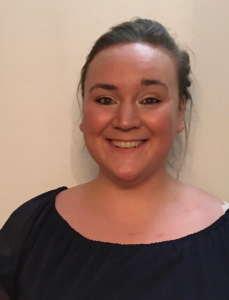The Department of Cognitive and Learning Sciences will host ACSHF PhD Students Tauseef Ibne Mamun and Brittany Nelson at the next Applied Cognitive Science and Human Factors forum. Their presentations will be from 2:00 to 3:00 p.m. Monday (April 18) in Meese 109 and via Zoom.
Tauseef Ibne Mamun
“Connected Vehicle Field Study: Outcomes and Challenges“
Abstract: Poor driver decision-making continues to be a challenge at Highway-Rail Grade Crossings (HRGC). One way to improve safety has been to introduce a new, in-vehicle warning system that communicates with the external HRGC warning systems. The system gives drivers different rail-crossing-related warnings (e.g., approaching crossing, train presence) depending on the vehicle location. In a rare field study, 15 experienced drivers drove a connected vehicle (Chevy Volt) and used the warning system on a 12-mile loop, then completed a semi-structured interview and usability survey. Results from the post-drive survey and interview are reported and provide a template for future usability assessments for field studies involving new technologies.
Brittany Nelson
“Identifying Healthy Lifestyle Knowledge Gaps Among Medical and Non-medical Students“
Abstract: Across the US, chronic illnesses including cancer and cardiovascular disease are a result of poor lifestyle decisions such as diet, tobacco/alcohol use, and physical inactivity. Data suggests that previous interventions lack effectiveness for impacting lifestyle decisions, particularly long term. One reason why individuals continue to engage in unhealthy behaviors may be due to gaps in understanding that are not currently filled by previously developed interventions. To the extent individuals are informed of the risks/benefits of key health behaviors and the tools valuable for overcoming challenges associated with engaging/quitting those behaviors then people are more equipped to make decisions that are in-line with their goals and values. Little information exists on what informational gaps people hold. Therefore, the objective of this study was two-fold. First, it was designed to measure how calibrated medical and non-medical students are on the relation between lifestyle behaviors and their risk of major diseases. Second, this study was designed to identify informational gaps that impact perceived challenges of engaging in healthier lifestyle behaviors. Data from medical (N = 128) and non-medical (N = 24) students suggests they hold insufficient knowledge regarding the relation between lifestyle behaviors and risk of health outcomes. The most commonly reported barriers across non-dietary behaviors were time 39%, lack of motivation 15%, and weather 9%. The most commonly reported barriers specific to eating behaviors were cost 26%, taste 21%, and food spoiling too quickly 10%. The results from this study have implications for future intervention design.

